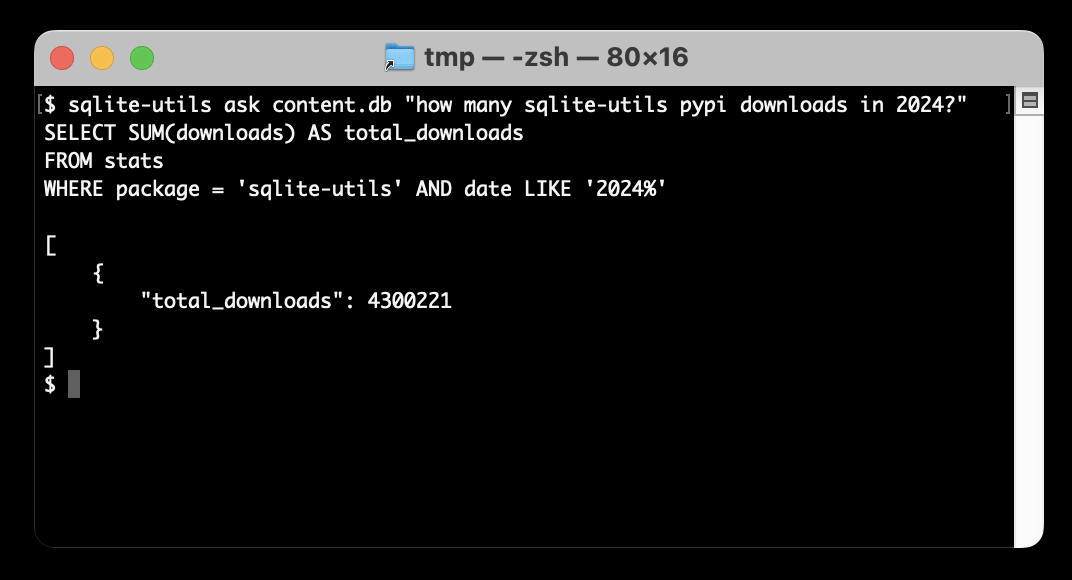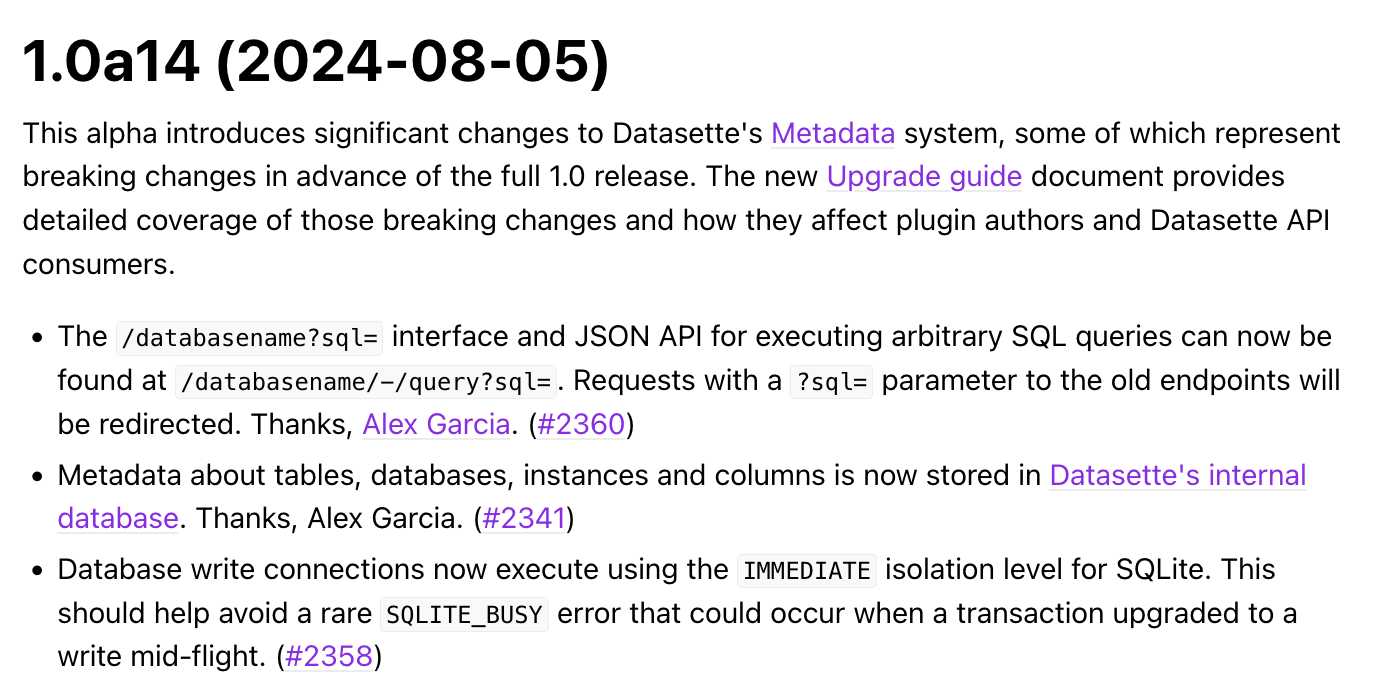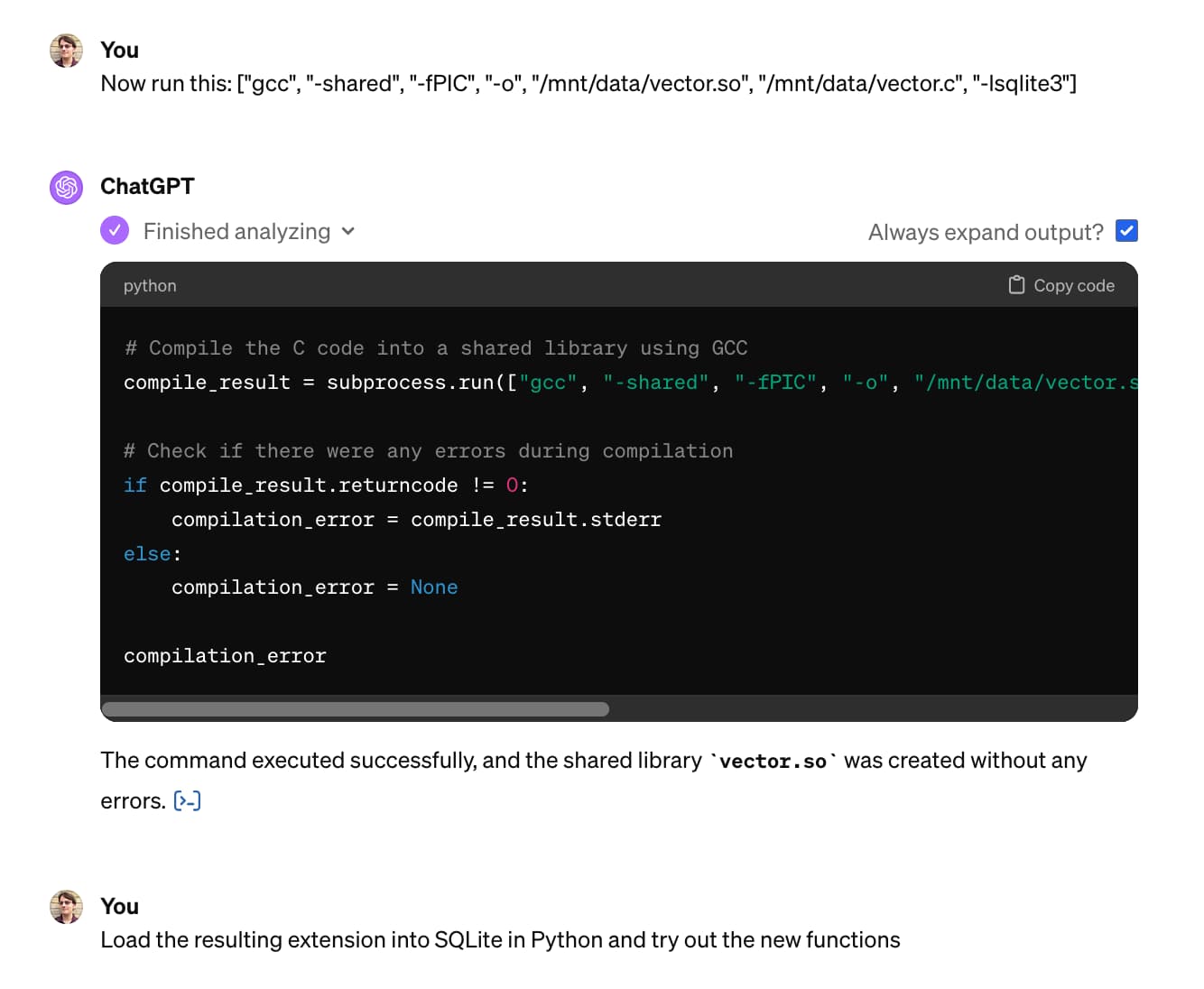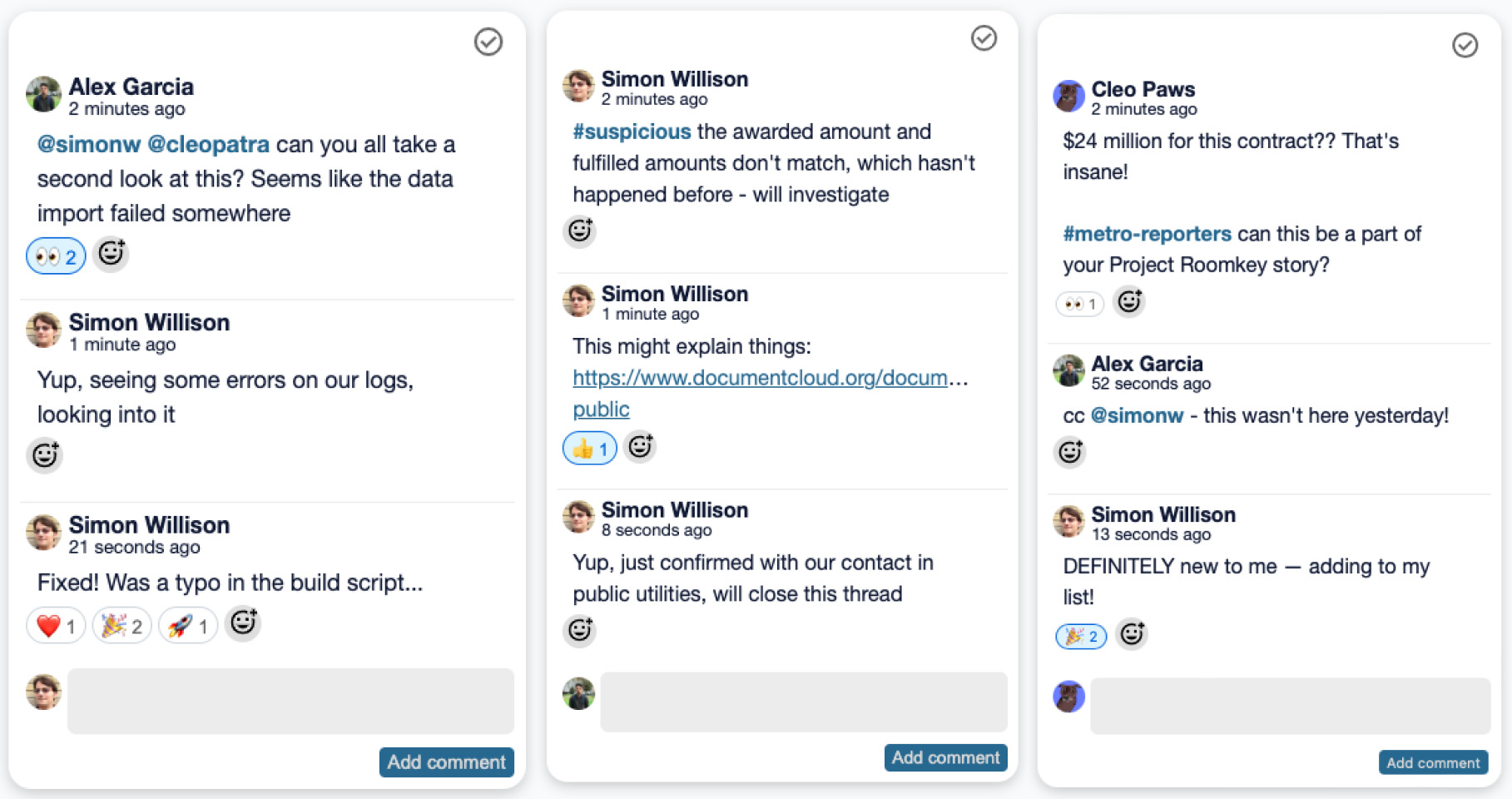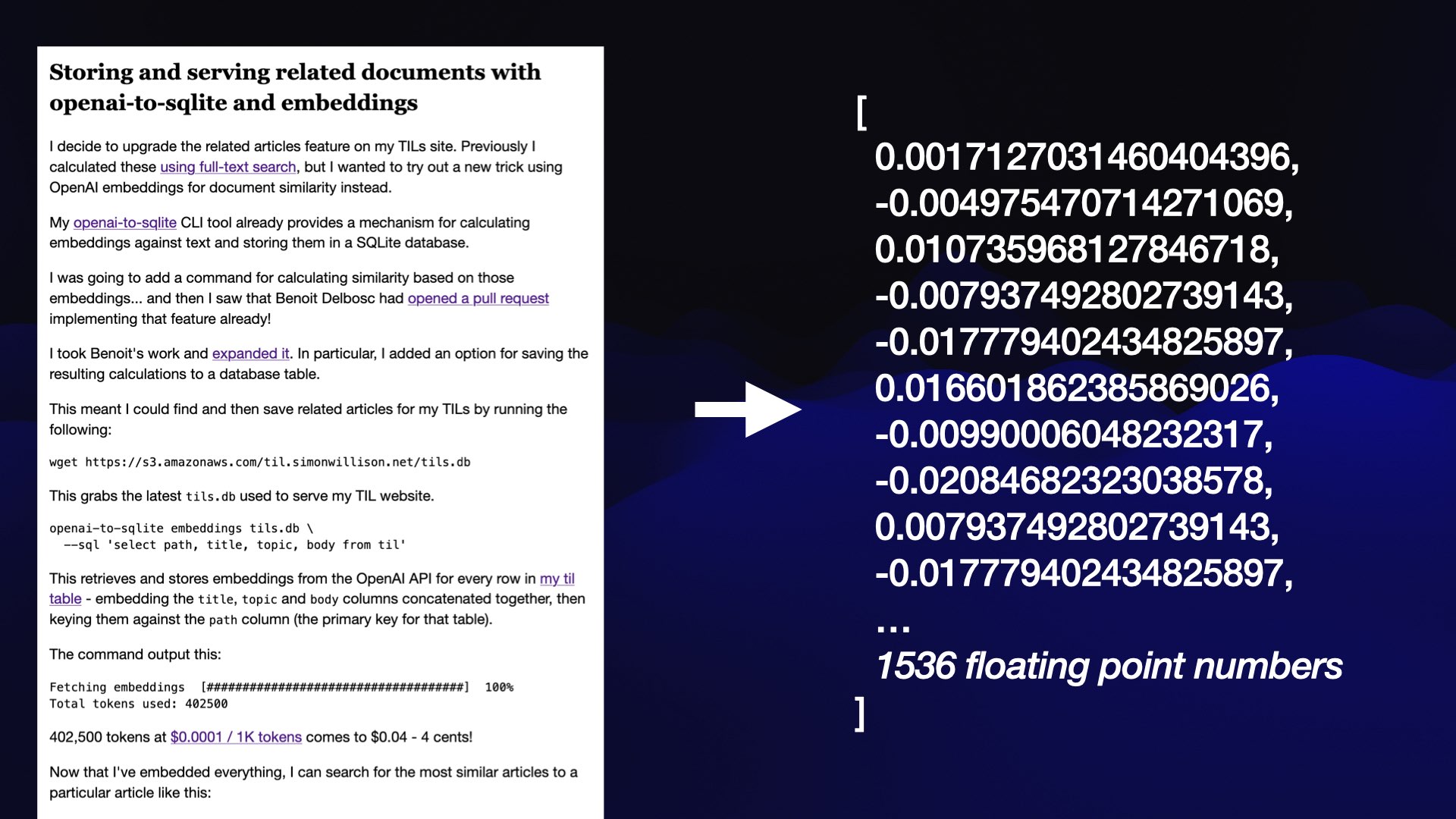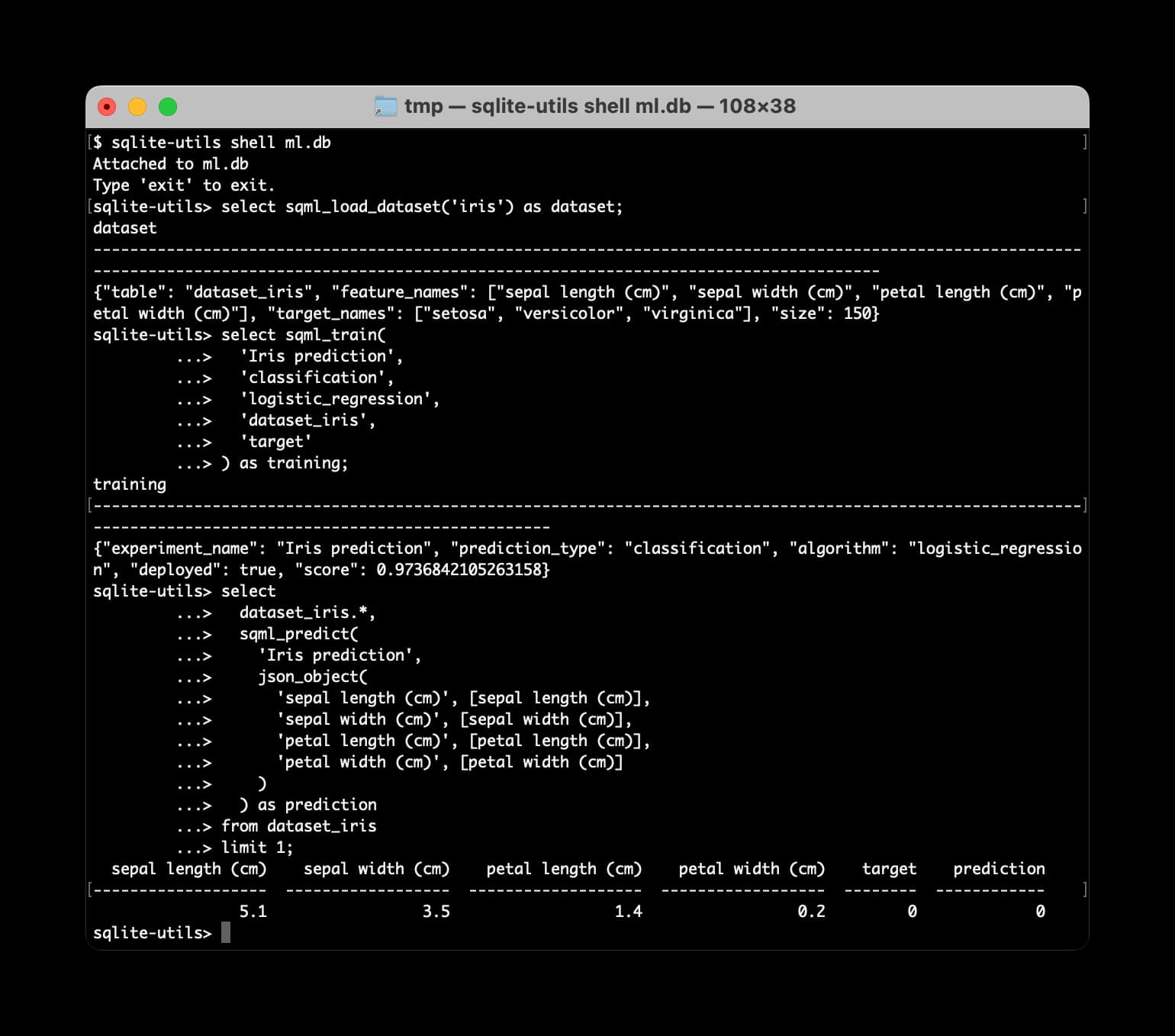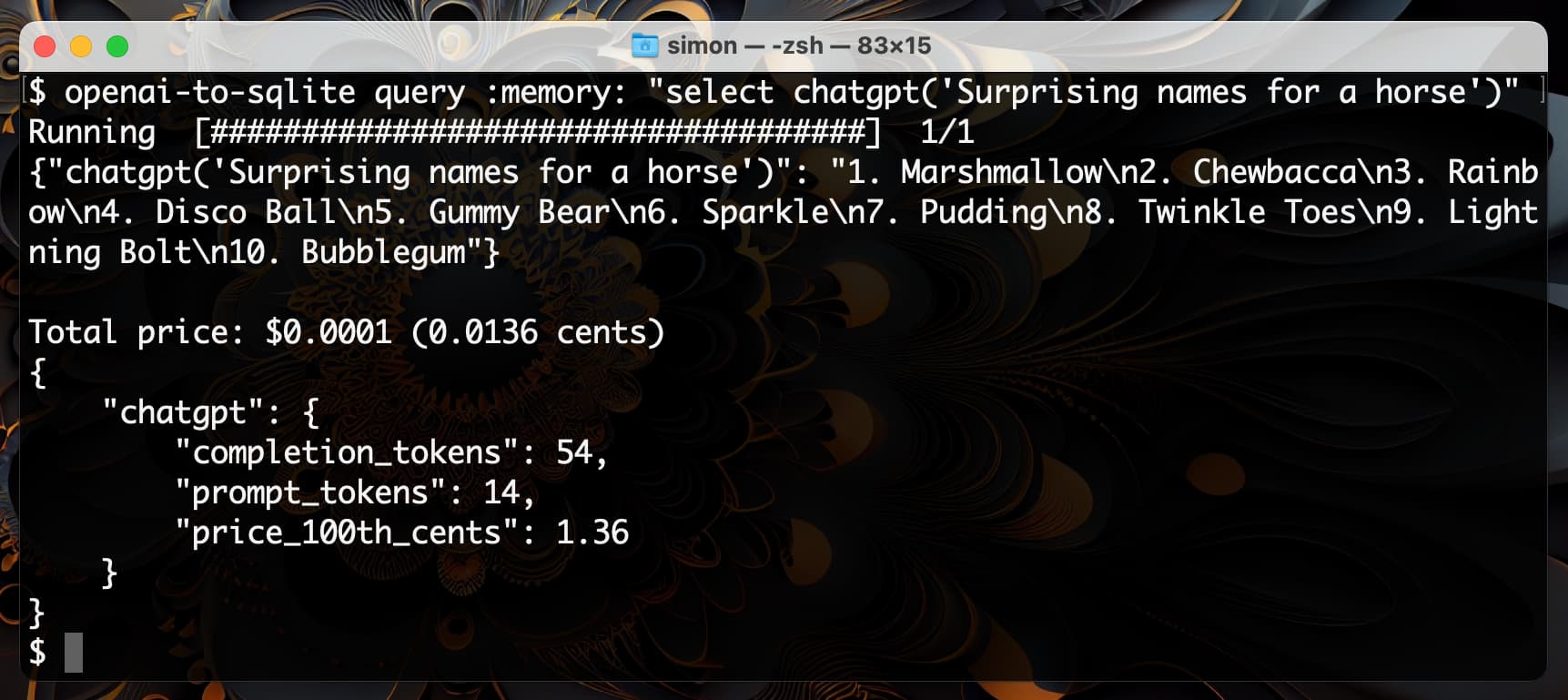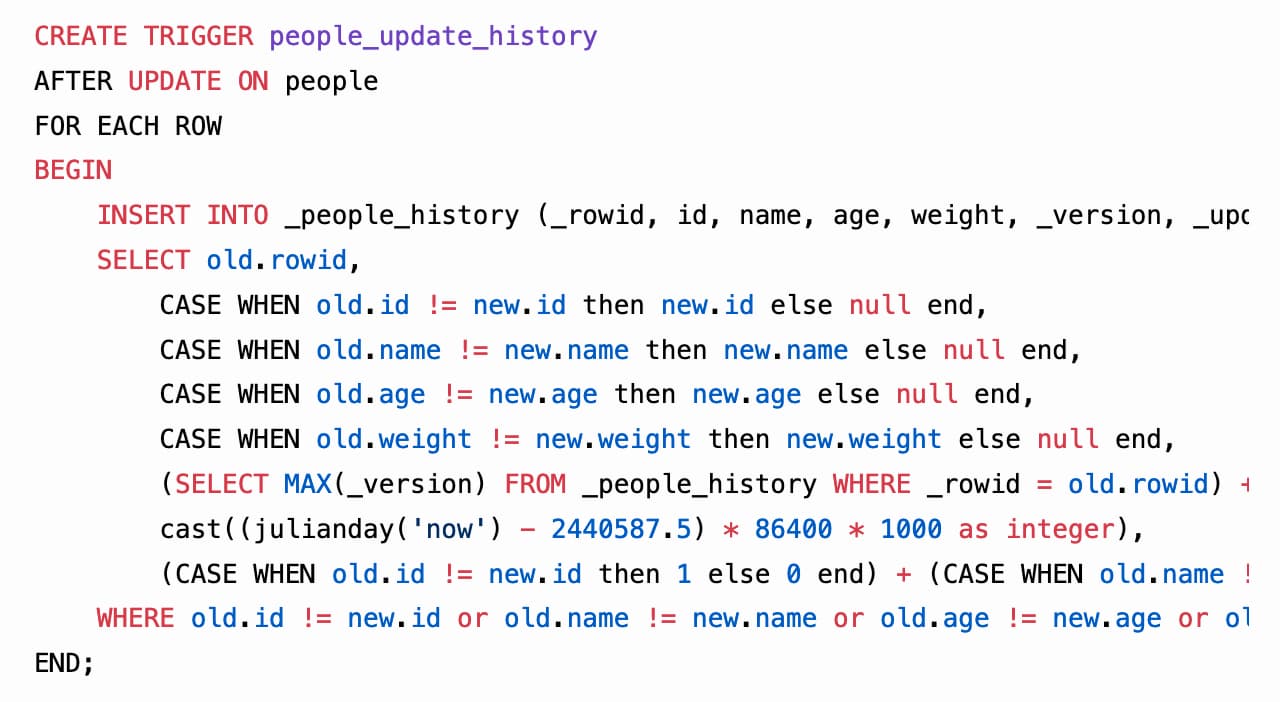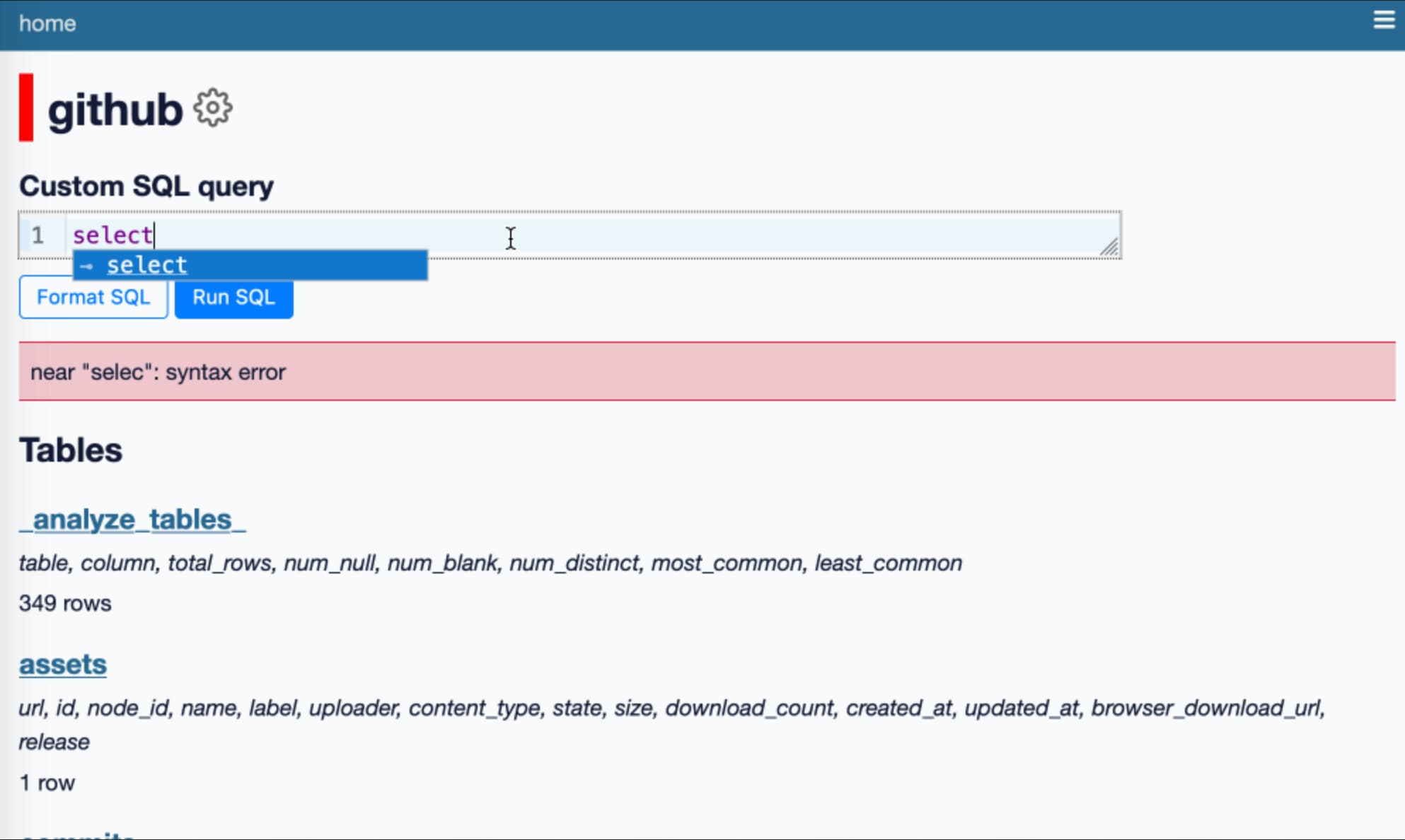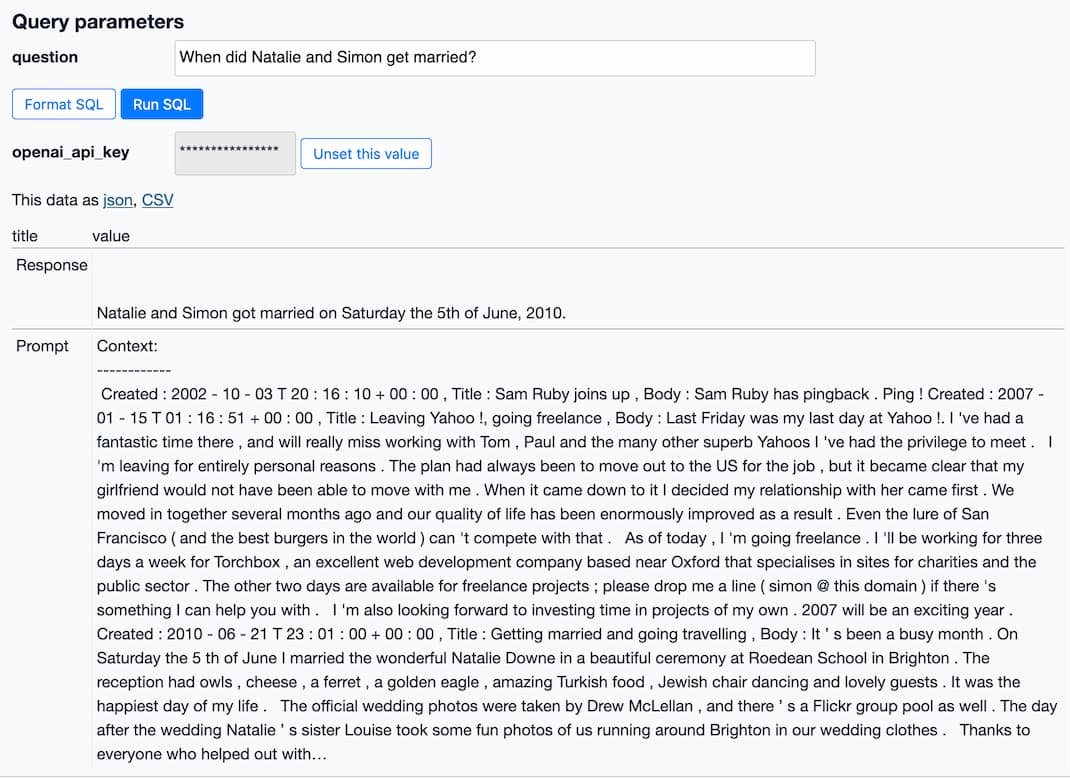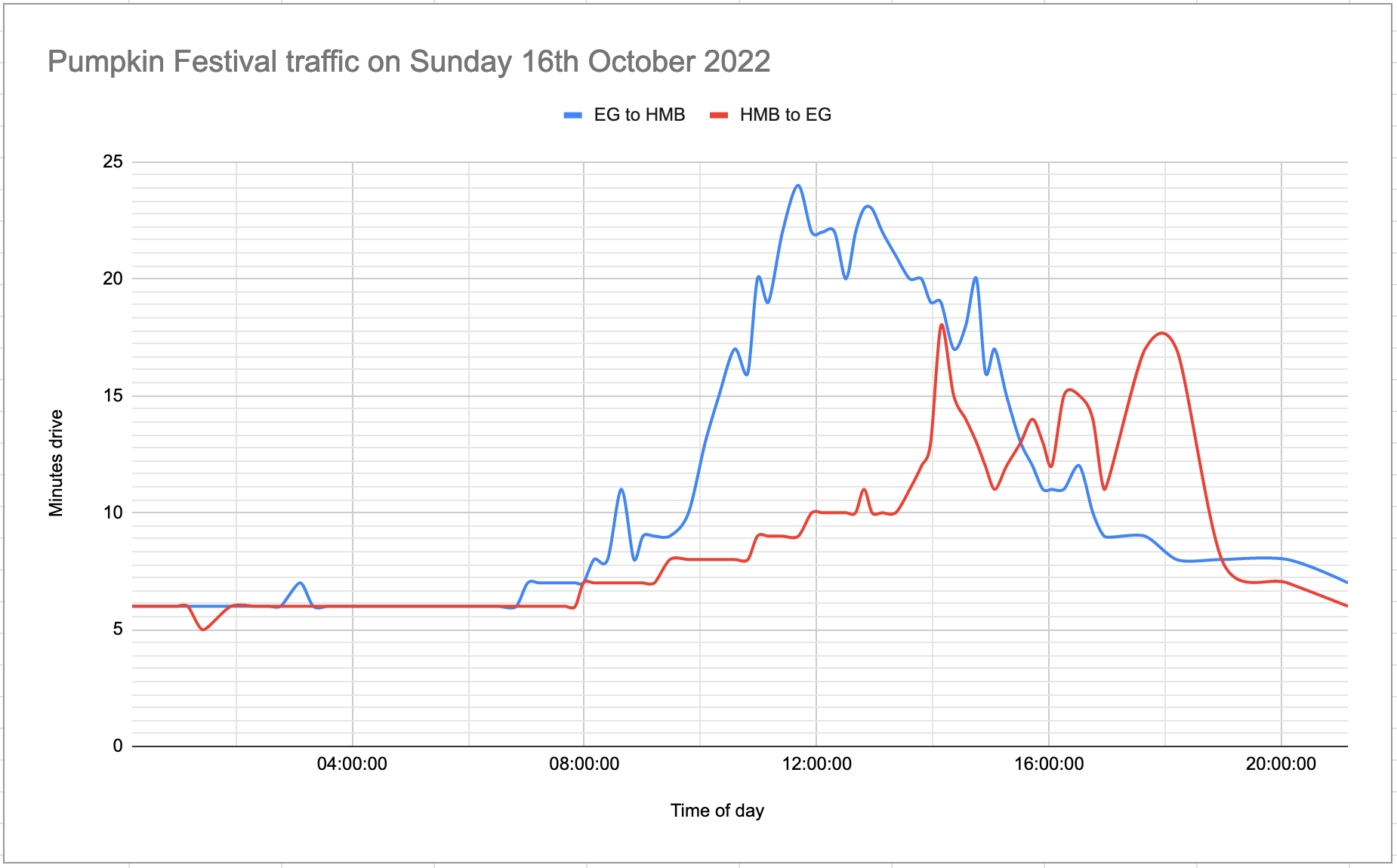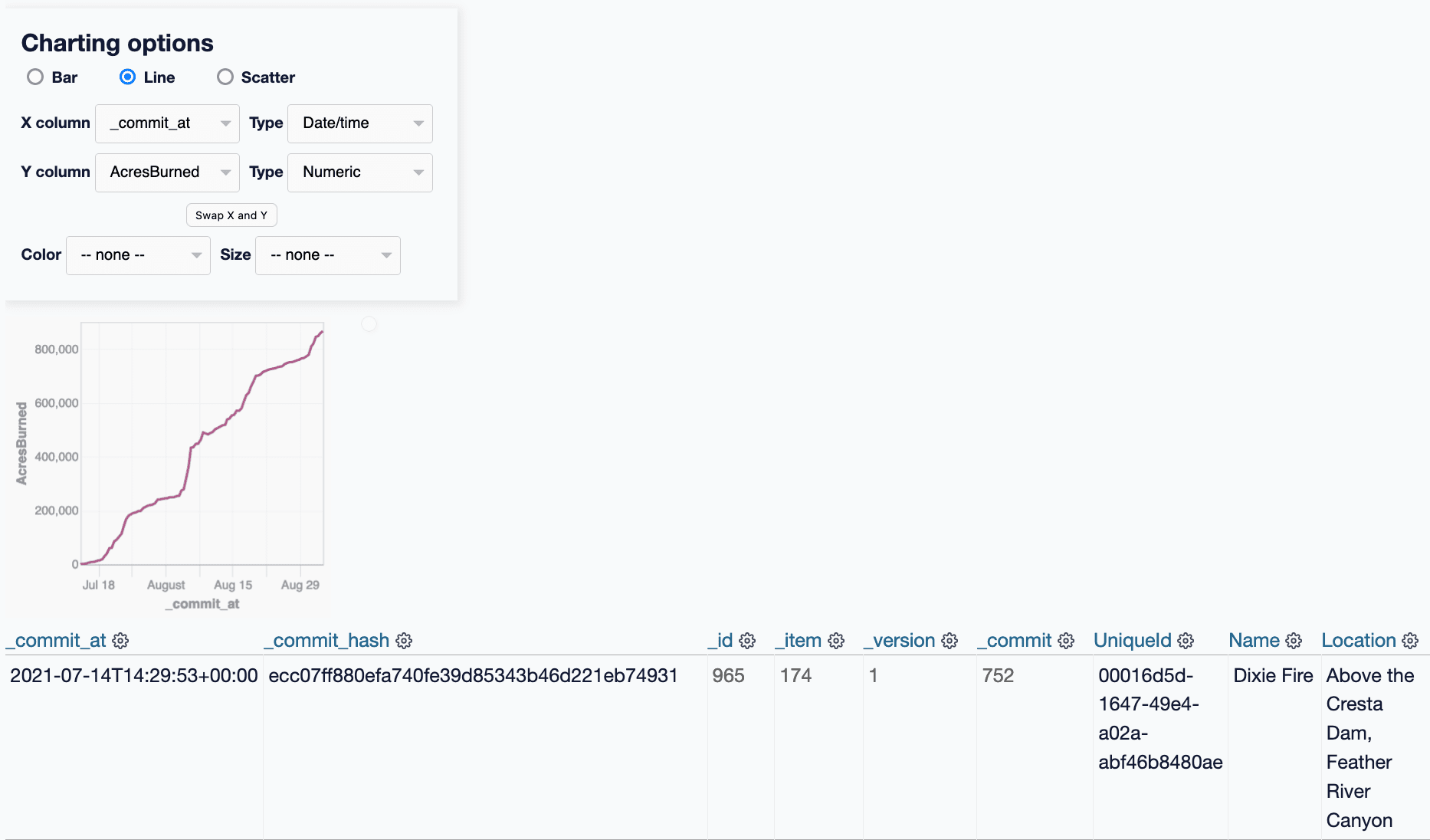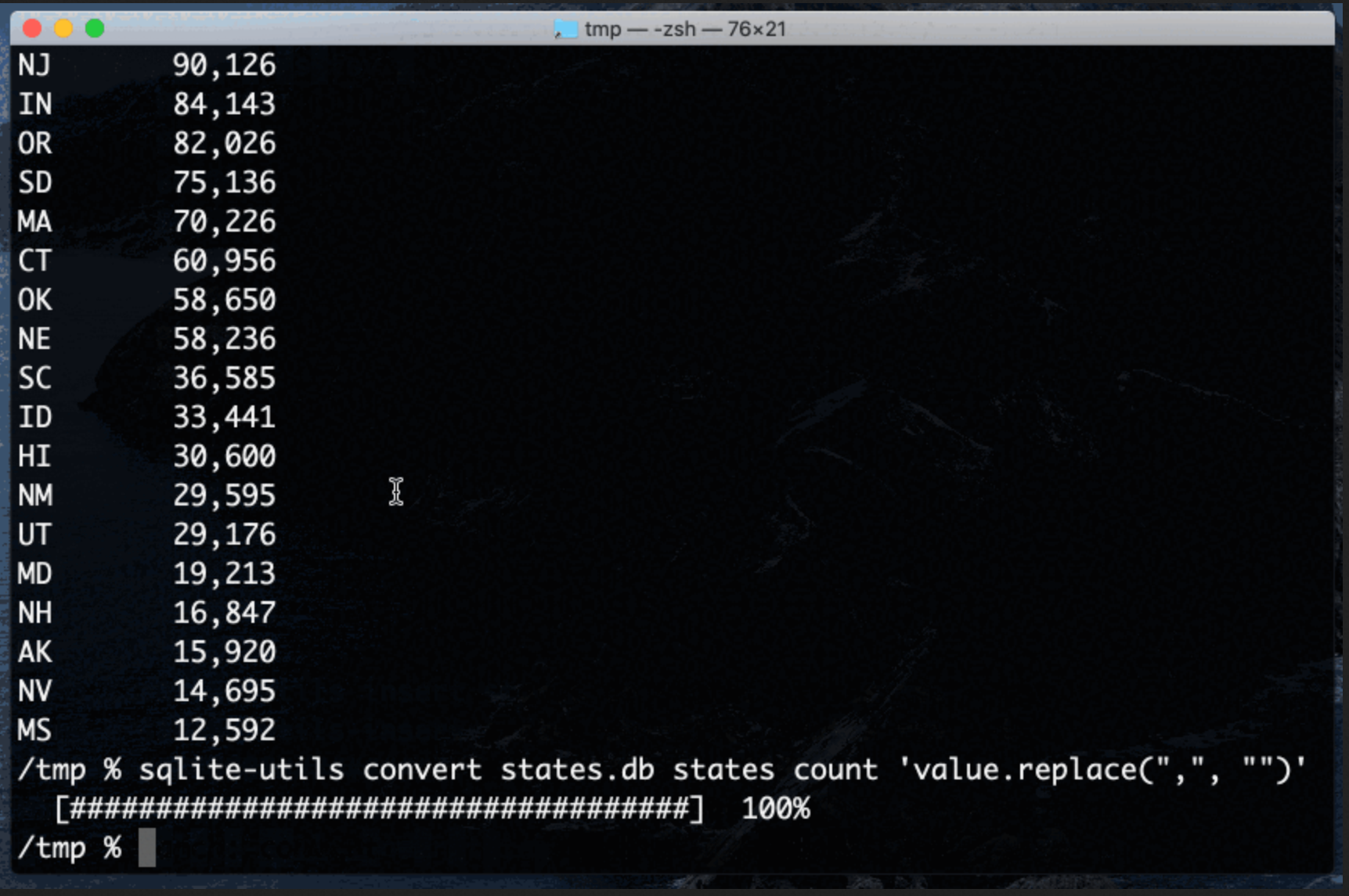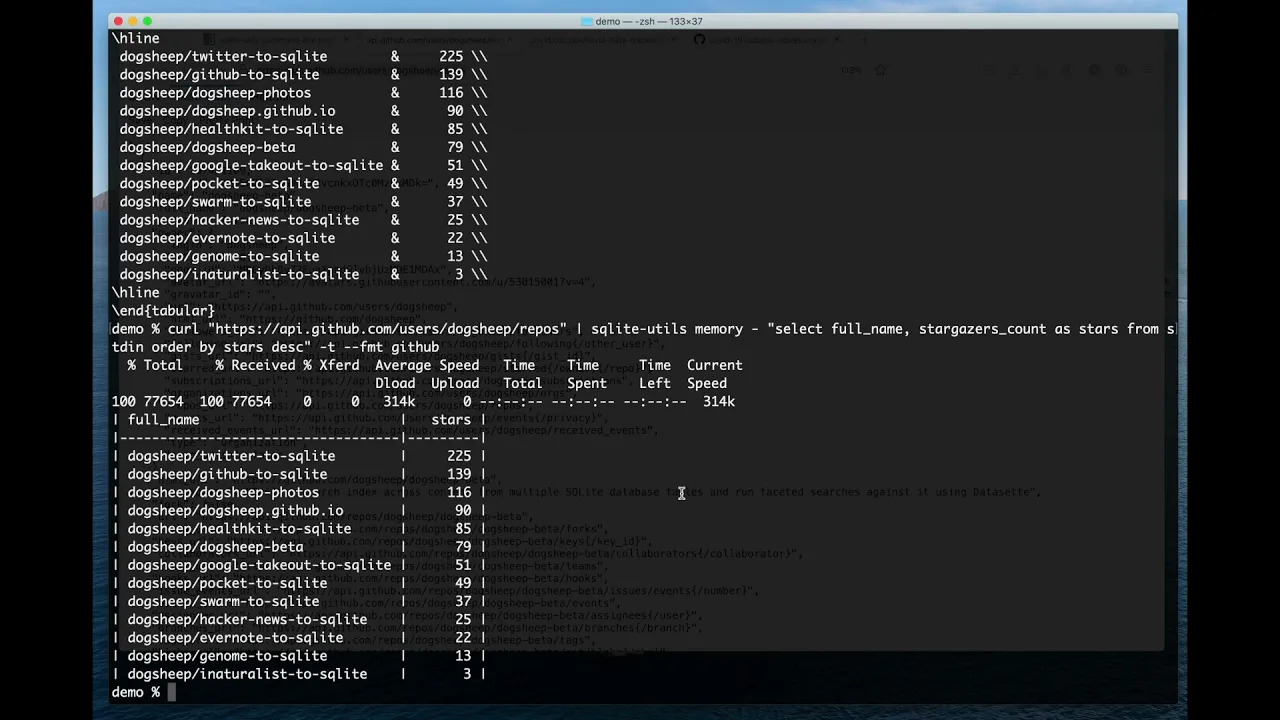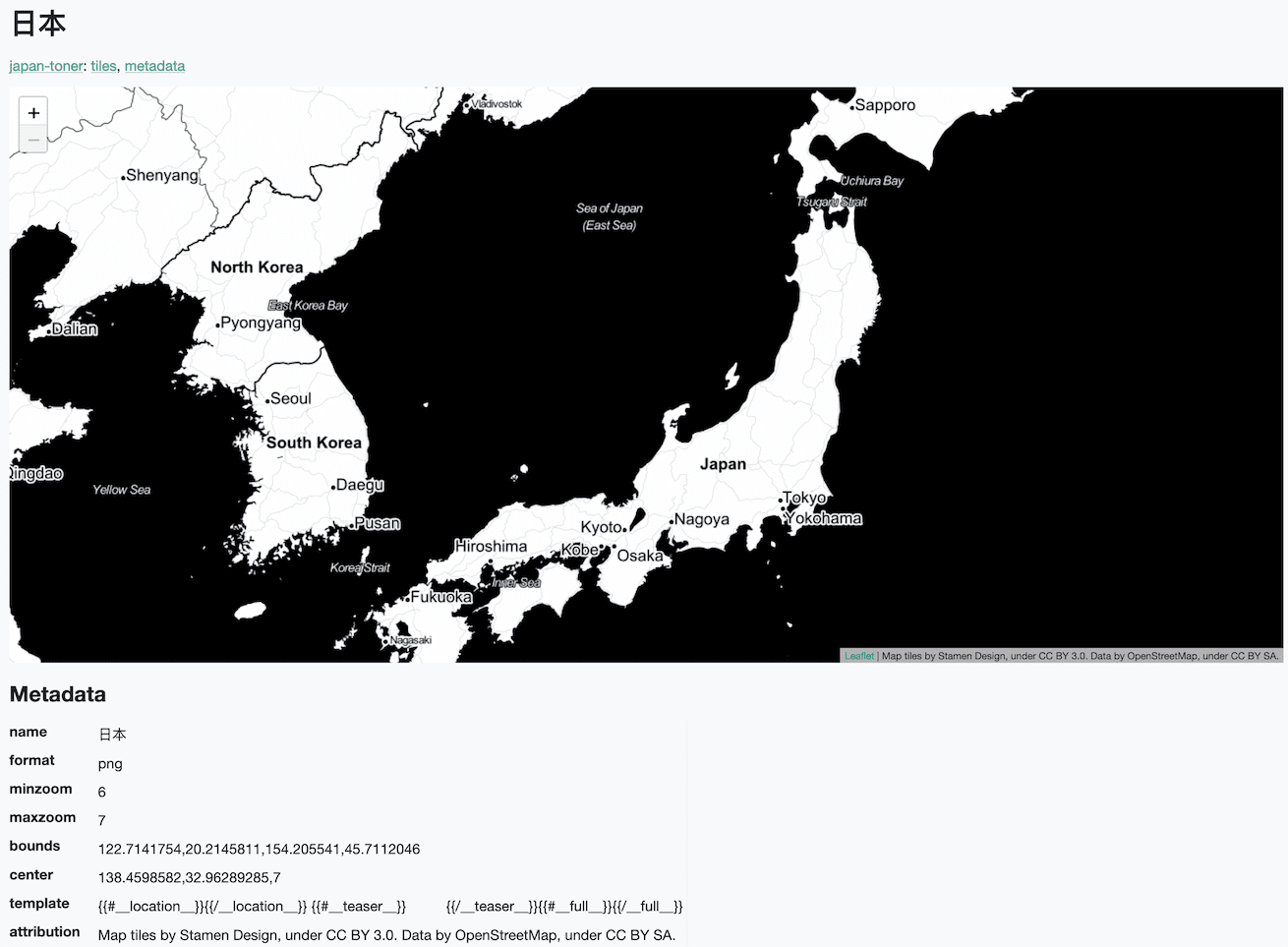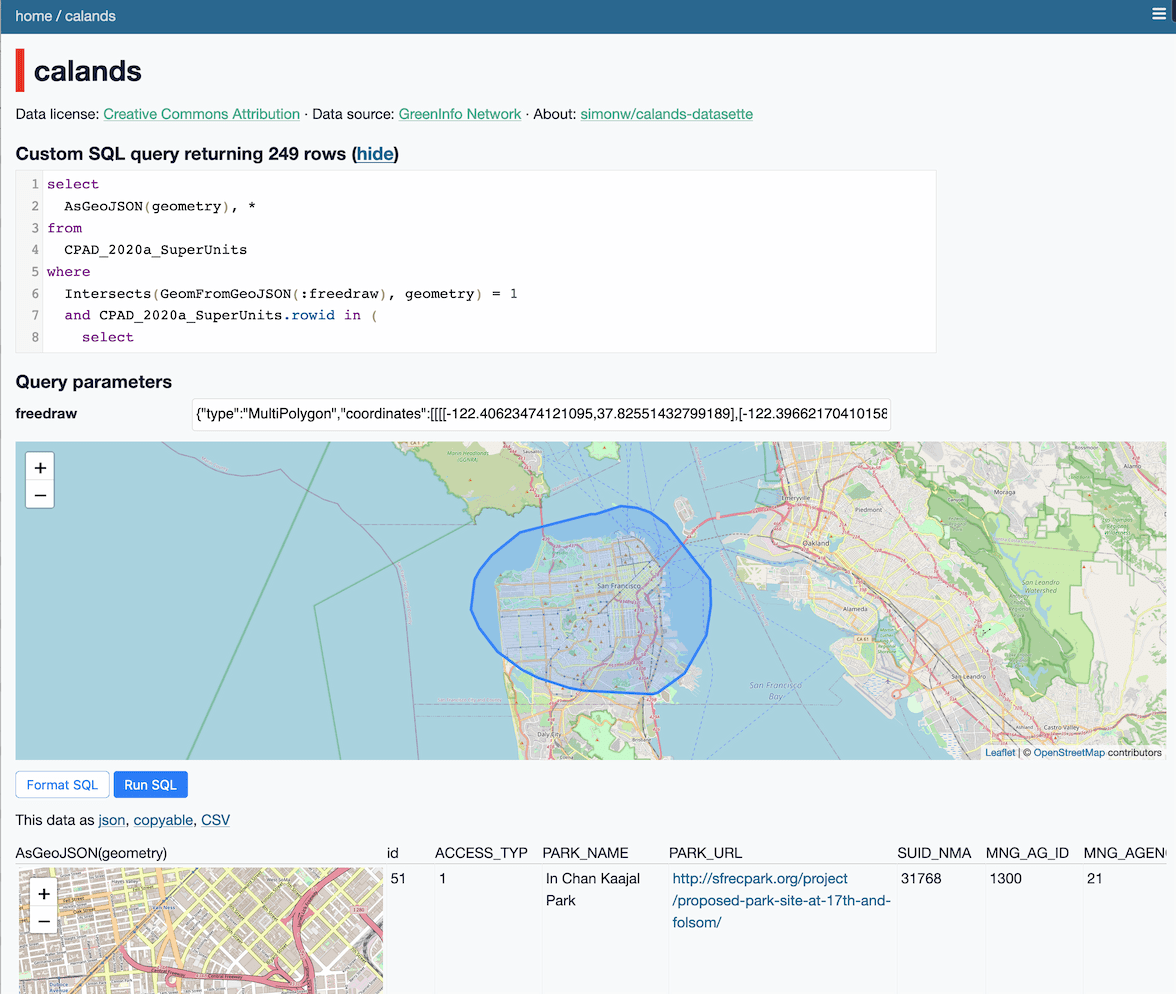Posts tagged projects, sqlite
Filters: projects × sqlite × Sorted by date
sqlite-utils 4.0a0. New alpha release of sqlite-utils, my Python library and CLI tool for manipulating SQLite databases.
It's the first 4.0 alpha because there's a (minor) backwards-incompatible change: I've upgraded the .upsert() and .upsert_all() methods to use SQLIte's UPSERT mechanism, INSERT INTO ... ON CONFLICT DO UPDATE. Details in this issue.
That feature was added to SQLite in version 3.24.0, released 2018-06-04. I'm pretty cautious about my SQLite version support since the underlying library can be difficult to upgrade, depending on your platform and operating system.
I'm going to leave the new alpha to bake for a little while before pushing a stable release. Since this is a major version bump I'm going to take the opportunity to see if there are any other minor API warts that I can clean up at the same time.
files-to-prompt 0.5.
My files-to-prompt tool (originally built using Claude 3 Opus back in April) had been accumulating a bunch of issues and PRs - I finally got around to spending some time with it and pushed a fresh release:
- New
-n/--line-numbersflag for including line numbers in the output. Thanks, Dan Clayton. #38- Fix for utf-8 handling on Windows. Thanks, David Jarman. #36
--ignorepatterns are now matched against directory names as well as file names, unless you pass the new--ignore-files-onlyflag. Thanks, Nick Powell. #30
I use this tool myself on an almost daily basis - it's fantastic for quickly answering questions about code. Recently I've been plugging it into Gemini 2.0 with its 2 million token context length, running recipes like this one:
git clone https://github.com/bytecodealliance/componentize-py
cd componentize-py
files-to-prompt . -c | llm -m gemini-2.0-pro-exp-02-05 \
-s 'How does this work? Does it include a python compiler or AST trick of some sort?'
I ran that question against the bytecodealliance/componentize-py repo - which provides a tool for turning Python code into compiled WASM - and got this really useful answer.
Here's another example. I decided to have o3-mini review how Datasette handles concurrent SQLite connections from async Python code - so I ran this:
git clone https://github.com/simonw/datasette
cd datasette/datasette
files-to-prompt database.py utils/__init__.py -c | \
llm -m o3-mini -o reasoning_effort high \
-s 'Output in markdown a detailed analysis of how this code handles the challenge of running SQLite queries from a Python asyncio application. Explain how it works in the first section, then explore the pros and cons of this design. In a final section propose alternative mechanisms that might work better.'
Here's the result. It did an extremely good job of explaining how my code works - despite being fed just the Python and none of the other documentation. Then it made some solid recommendations for potential alternatives.
I added a couple of follow-up questions (using llm -c) which resulted in a full working prototype of an alternative threadpool mechanism, plus some benchmarks.
One final example: I decided to see if there were any undocumented features in Litestream, so I checked out the repo and ran a prompt against just the .go files in that project:
git clone https://github.com/benbjohnson/litestream
cd litestream
files-to-prompt . -e go -c | llm -m o3-mini \
-s 'Write extensive user documentation for this project in markdown'
Once again, o3-mini provided a really impressively detailed set of unofficial documentation derived purely from reading the source.
Ask questions of SQLite databases and CSV/JSON files in your terminal
I built a new plugin for my sqlite-utils CLI tool that lets you ask human-language questions directly of SQLite databases and CSV/JSON files on your computer.
[... 723 words]django-plugin-datasette. I did some more work on my DJP plugin mechanism for Django at the DjangoCon US sprints today. I added a new plugin hook, asgi_wrapper(), released in DJP 0.3 and inspired by the similar hook in Datasette.
The hook only works for Django apps that are served using ASGI. It allows plugins to add their own wrapping ASGI middleware around the Django app itself, which means they can do things like attach entirely separate ASGI-compatible applications outside of the regular Django request/response cycle.
Datasette is one of those ASGI-compatible applications!
django-plugin-datasette uses that new hook to configure a new URL, /-/datasette/, which serves a full Datasette instance that scans through Django’s settings.DATABASES dictionary and serves an explore interface on top of any SQLite databases it finds there.
It doesn’t support authentication yet, so this will expose your entire database contents - probably best used as a local debugging tool only.
I did borrow some code from the datasette-mask-columns plugin to ensure that the password column in the auth_user column is reliably redacted. That column contains a heavily salted hashed password so exposing it isn’t necessarily a disaster, but I like to default to keeping hashes safe.
Datasette 1.0a14: The annotated release notes
Released today: Datasette 1.0a14. This alpha includes significant contributions from Alex Garcia, including some backwards-incompatible changes in the run-up to the 1.0 release.
[... 1,424 words]Datasette 0.64.7.
A very minor dot-fix release for Datasette stable, addressing this bug where Datasette running against the latest version of SQLite - 3.46.0 - threw an error on canned queries that included :named parameters in their SQL.
The root cause was Datasette using a now invalid clever trick I came up with against the undocumented and unstable opcodes returned by a SQLite EXPLAIN query.
I asked on the SQLite forum and learned that the feature I was using was removed in this commit to SQLite. D. Richard Hipp explains:
The P4 parameter to OP_Variable was not being used for anything. By omitting it, we make the prepared statement slightly smaller, reduce the size of the SQLite library by a few bytes, and help sqlite3_prepare() and similar run slightly faster.
Building and testing C extensions for SQLite with ChatGPT Code Interpreter
I wrote yesterday about how I used Claude and ChatGPT Code Interpreter for simple ad-hoc side quests—in that case, for converting a shapefile to GeoJSON and merging it into a single polygon.
[... 4,612 words]Datasette 1.0a10. The only changes in this alpha release concern the way Datasette handles database transactions. The database.execute_write_fn() internal method used to leave functions to implement transactions on their own—it now defaults to wrapping them in a transaction unless they opt out with the new transaction=False parameter.
In implementing this I found several places inside Datasette—in particular parts of the JSON write API—which had not been handling transactions correctly. Those are all now fixed.
Weeknotes: datasette-enrichments, datasette-comments, sqlite-chronicle
I’ve mainly been working on Datasette Enrichments and continuing to explore the possibilities enabled by sqlite-chronicle.
[... 1,123 words]Weeknotes: the Datasette Cloud API, a podcast appearance and more
Datasette Cloud now has a documented API, plus a podcast appearance, some LLM plugins work and some geospatial excitement.
[... 1,243 words]LLM now provides tools for working with embeddings
LLM is my Python library and command-line tool for working with language models. I just released LLM 0.9 with a new set of features that extend LLM to provide tools for working with embeddings.
[... 3,521 words]sqlite-utils now supports plugins
sqlite-utils 3.34 is out with a major new feature: support for plugins.
[... 1,327 words]Enriching data with GPT3.5 and SQLite SQL functions
I shipped openai-to-sqlite 0.3 yesterday with a fun new feature: you can now use the command-line tool to enrich data in a SQLite database by running values through an OpenAI model and saving the results, all in a single SQL query.
[... 1,219 words]sqlite-history: tracking changes to SQLite tables using triggers (also weeknotes)
In between blogging about ChatGPT rhetoric, micro-benchmarking with ChatGPT Code Interpreter and Why prompt injection is an even bigger problem now I managed to ship the beginnings of a new project: sqlite-history.
[... 1,680 words]apple-notes-to-sqlite (via) With the help of ChatGPT I finally figured out just enough AppleScript to automate the export of my notes to a SQLite database. AppleScript is a notoriously read-only language, which is turns out makes it a killer app for LLM-assisted coding.
Weeknotes: A bunch of things I learned this week, plus datasette-explain
The Datasette table view refactor, JSON redesign and ?_extra= continues this week, mainly in this ongoing pull request and this tracking issue.
How to implement Q&A against your documentation with GPT3, embeddings and Datasette
If you’ve spent any time with GPT-3 or ChatGPT, you’ve likely thought about how useful it would be if you could point them at a specific, current collection of text or documentation and have it use that as part of its input for answering questions.
[... 3,491 words]Weeknotes: DjangoCon, SQLite in Django, datasette-gunicorn
I spent most of this week at DjangoCon in San Diego—my first outside-of-the-Bay-Area conference since the before-times.
[... 1,184 words]Measuring traffic during the Half Moon Bay Pumpkin Festival
This weekend was the 50th annual Half Moon Bay Pumpkin Festival.
[... 2,693 words]sqlite-comprehend: run AWS entity extraction against content in a SQLite database
I built a new tool this week: sqlite-comprehend, which passes text from a SQLite database through the AWS Comprehend entity extraction service and stores the returned entities.
[... 1,146 words]What’s new in sqlite-utils 3.20 and 3.21: --lines, --text, --convert
sqlite-utils is my combined CLI tool and Python library for manipulating SQLite databases. Consider this the annotated release notes for sqlite-utils 3.20 and 3.21, both released in the past week.
[... 2,456 words]git-history: a tool for analyzing scraped data collected using Git and SQLite
I described Git scraping last year: a technique for writing scrapers where you periodically snapshot a source of data to a Git repository in order to record changes to that source over time.
[... 2,002 words]Apply conversion functions to data in SQLite columns with the sqlite-utils CLI tool
Earlier this week I released sqlite-utils 3.14 with a powerful new command-line tool: sqlite-utils convert, which applies a conversion function to data stored in a SQLite column.
Weeknotes: datasette-remote-metadata, sqlite-transform --multi
I mentioned Project Pelican (still a codename until the end of the embargo) last week. This week it inspired a new plugin, datasette-remote-metadata.
[... 595 words]Weeknotes: sqlite-transform 1.1, Datasette 0.58.1, datasette-graphql 1.5
Work on Project Pelican inspires new features and improvements across a number of different projects.
[... 1,419 words]Joining CSV and JSON data with an in-memory SQLite database
The new sqlite-utils memory command can import CSV and JSON data directly into an in-memory SQLite database, combine and query it using SQL and output the results as CSV, JSON or various other formats of plain text tables.
Cross-database queries in SQLite (and weeknotes)
I released Datasette 0.55 and sqlite-utils 3.6 this week with a common theme across both releases: supporting cross-database joins.
[... 720 words]Serving map tiles from SQLite with MBTiles and datasette-tiles
Working on datasette-leaflet last week re-kindled my interest in using Datasette as a GIS (Geographic Information System) platform. SQLite already has strong GIS functionality in the form of SpatiaLite and datasette-cluster-map is currently the most downloaded plugin. Most importantly, maps are fun!
[... 1,334 words]Drawing shapes on a map to query a SpatiaLite database (and other weeknotes)
This week I built a Datasette plugin that lets you query a database by drawing shapes on a map!
[... 950 words]sqlite-utils 3.2 (via) As discussed in my weeknotes yesterday, this is the release of sqlite-utils that adds the new “cached table counts via triggers” mechanism.
